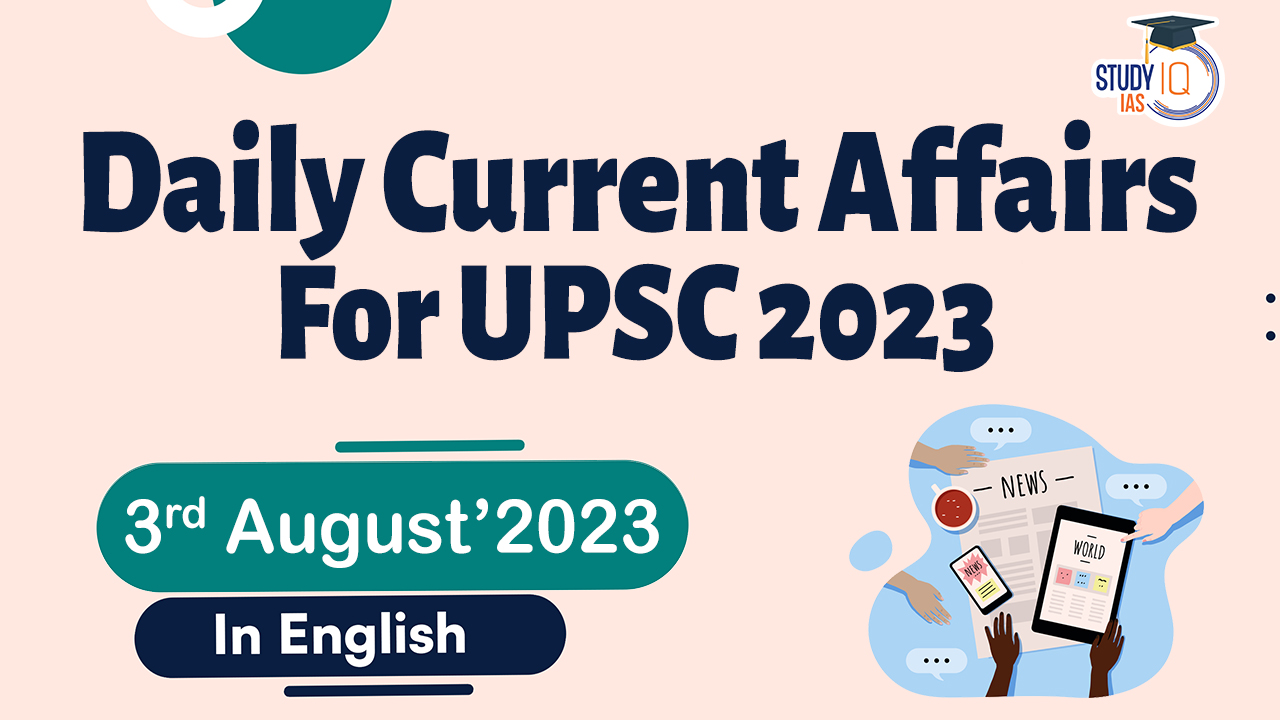Daily Current Affairs for UPSC 2023
Q) Which of the following statements is not correct about Quantum Computing?
- It can process information faster than classical computers.
- It has high error rates compared to conventional computers.
- They are difficult to be hacked due to their use of qubits.
- In 2019, India achieved ‘quantum supremacy’ globally.
Daily Current Affairs for UPSC – 2 August April 2023
Explanation:
- Options (1), (2) and (3) are correct: Unlike classical computing, which uses bits that can only be in one of two states (0 or 1), quantum computing uses quantum bits (qubits) that can be in multiple states at once. This allows quantum computers to perform certain types of calculations faster than classical computers, and to solve problems that are difficult or impossible for classical computers to solve. It can also process information faster than classical computers. The security of Quantum Computing is very high. Quantum Computing are difficult to be hacked due to their use of qubits. However, the error rate of Quantum Computing is high in comparison to error rate of conventional computers.
- Option (4) is incorrect: In 2019, Google announced that they have achieved ‘quantum supremacy’, in which a computer harnessing the properties of sub-atomic particles did a far better job of solving a problem than the world’s most powerful supercomputer. Whereas, India formally joined the race to quantum computing by establishing the National Mission for Quantum Technology and Applications (NM-QTA) in 2020. However, for India to match pace with China and the US, it must identify and address a few key policy gaps. These will not only make India a competent contender in the global quantum race but also usher a new paradigm of technology policymaking in the country.
Q) Consider the following statements:
- Ransomware incidents in India have increase drastically in 2022 as per “Crime in India, 2020” report of the National Crime Records Bureau.
- The National Cyber Coordination Centre is a multi-stakeholder cybersecurity and e-surveillance agency that functions under the Ministry of Home Affairs.
- Indian Cyber Crime Coordination Centre was established by the Indian Computer Emergency Response Team (CERT-In) in 2018 to combat cybercrimes in India.
How many of the statements given above are correct?
- Only one
- Only two
- All three
- None
Explanation:
- Statement 1 is incorrect: As per the NCRB data from “Crime in India, 2020”, Cybercrimes have increased four times or 306 percent in the past four years and rate of cybercrime (incidents per lakh population) increased in 2020. India saw a 53 per cent increase in ransomware incidents in 2022 (year-over-year), according to the “India Ransomware Report 2022” published by the CERT-In.
- Statement 2 is incorrect: National Cyber Coordination Centre (NCCC) is multi-stakeholder cybersecurity and e-surveillance agency, under CERT-In, Ministry of Electronics and Information Technology. It generates situational awareness of existing and potential cyber security threats and enable timely information sharing for proactive, preventive and protective actions by individual entities.
- Statement 3 is incorrect: Indian Cyber Crime Coordination Centre (I4C) was rolled out by Ministry of Home Affairs for the period 2018-2020 to combat cybercrime in the country, in a coordinated and effective manner. The Indian Computer Emergency Response Team (CERT-In or ICERT) is an office within the Ministry of Electronics and Information Technology of the Government of India.
Q) Consider the following statements about WHO Report on Tobacco Control:
- As per the report, non-smokers exposed to second-hand smoke constitute about half of the tobacco-related deaths each year.
- More than 70 percent of the world’s population is protected under one the MPOWER measures for reducing the demand for tobacco.
- None of the countries has been able to fully implement all the MPOWER measures on tobacco control.
Which of the statements given above is/are correct?
- 1 and 2 only
- 2 only
- 2 and 3 only
- 3 only
Explanation:
- Statement 1 is incorrect but Statement 2 is correct: World Health Organisation (WHO) has released a report on tobacco control measures. This was the ninth WHO report on the global tobacco epidemic which tracks the progress made by countries in tobacco control since 2008. In line with the WHO Framework Convention on Tobacco Control (WHO FCTC), WHO introduced the MPOWER measures in 2008. MPOWER are a set of six cost-effective and high impact measures that help countries reduce demand for tobacco. As per the WHO Report on Tobacco Control, in the 15 years since the MPOWER measures were first introduced, 5.6 billion people in the world, or 71% of the entire population, remain protected by at least one of the measures. This has increased from just 5% of the population in 2008. Of the estimated 8.7 million tobacco-related deaths each year, 1.3 million are of non-smokers exposed to second-hand smoke.
- Statement 3 is incorrect: At least four countries – Brazil, Turkiye, Netherlands, and Mauritius – have implemented all the MPOWER measures. However, there are at least 44 countries in the world that still do not implement any MPOWER measure. The tobacco industry is aggressively promoting E-cigarettes as a safer alternative to cigarettes which is undermining the progress made on tobacco control. E-cigarettes are harmful to both the people using them and those around them, especially when used indoors.
Q) Consider the following statements about Nyaya Bandhu Program:
- The programme was launched by the Ministry of Corporate Affairs.
- The programme aims to provide voluntary legal advice to individuals and organisations that cannot access legal aid.
- Industrial workers are eligible to receive legal assistance under the Nyaya Bandhu programme.
How many of the statements given above are correct?
- Only one
- Only two
- All three
- None
Explanation:
- Statement 1 is incorrect but Statement 2 is correct: Nyaya Bandhu Program was launched by the Ministry of Law and Justice. The scheme would facilitate delivery of quality legal assistance to the marginalized communities. It would also ensure that lawyer who volunteer their valuable time and service, towards this public service, are duly recognized for their contribution. It is a pro bono legal service that was launched by the Government in 2017 to connect the registered lawyers with the registered beneficiaries. This scheme gives voluntary legal advice to individuals and organisations that are unable to afford legal advice and/or cannot access legal aid.
- Statement 3 is correct: Beneficiaries or Applicants, to avail the benefits under this programme must belong to one of the categories mentioned under Section 12 of The Legal Services Authority Act of 1987. These include:
- Member of a Scheduled Caste
- Member of a Scheduled Tribe
- Victim of trafficking in human beings or begar as referred in article 23 of the Constitution.
- Woman or a Child
- Person with disability
- Person in custody
- Industrial workman
- Victim of a mass disaster, ethnic violence, caste atrocity, flood, drought, earthquake or industrial disaster
- Person with annual income less than as specified under law
- Practicing advocates, interested to volunteer their time and services, are connected, via mobile technology, with eligible marginalized beneficiaries.
Q) With reference to Account Aggregator (AA), consider the following statements:
- AA is a non-banking finance company that digitally shares information between regulated financial institutions.
- According to Securities and Exchange Board of India (SEBI) rules, AAs can store customer data for further use in the securities market in India.
Which of the statements given above is/are correct?
- 1 only
- 2 only
- Both 1 and 2
- Neither 1 nor 2
Explanation:
- Statement 1 is correct: An Account Aggregator, a RBI-regulated Non-Banking Finance Company (NBFC), helps an individual securely and digitally access and share information from one financial institution they have an account with to any other regulated financial institution in the AA network.
- Statement 2 is incorrect: Securities and Exchange Board of India (SEBI) has come out with a proposal on collating and defining use cases of Financial Information Users (FIUs) in the Account Aggregator framework in securities markets. AAs cannot see or store customer data since the data processed through them is encrypted. They merely transmit it from one financial institution to another based on a customer’s direction and consent. Account Aggregator provides granular, step by step permission and control for each use of customer data.


 Satellite Internet, Working and Associat...
Satellite Internet, Working and Associat...
 Famous Indian Personalities and Their Ni...
Famous Indian Personalities and Their Ni...
 Daily Quiz 05 April 2025
Daily Quiz 05 April 2025





















